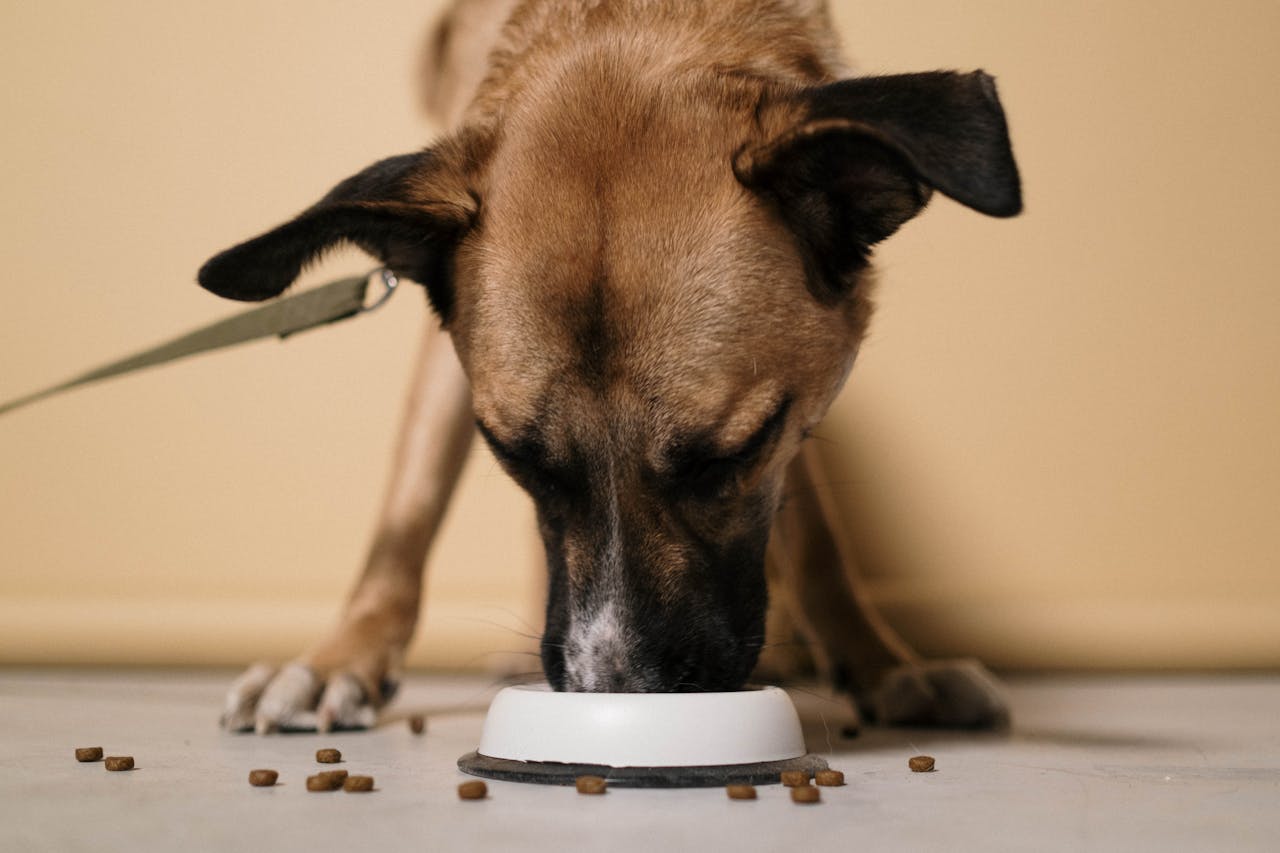
Puppies are adorable bundles of energy, always eager for treats, belly rubs, and attention. But as much as we love to spoil them, too much food can do more harm than good. Overfeeding a puppy isn’t just about a few extra pounds — it can lead to long-term health problems, bad habits, and even developmental issues.
In this blog, we’ll explore the top 10 warning signs that you might be overfeeding your puppy, how to fix it, and what a healthy feeding routine should look like.

If your puppy is gaining weight too quickly, it may be a sign you’re feeding them more than their body needs. A healthy puppy should have a gradual and consistent growth pattern, not a sudden increase in size or fat.
Tip: Feel their ribs. You should be able to feel them without pressing hard — if not, it’s time to reassess the food portions.
An overly plump puppy belly might look cute, but it can be a sign of excess fat, not just baby fluff. A rounded or distended belly (outside of meal time) could indicate you’re feeding too much or too often.
It may seem strange, but too much food can make your puppy sluggish. Overfed puppies may feel too full or uncomfortable to play, run, or explore like they should.
Digestive upset, such as loose stools, can result from feeding too much — or feeding too frequently. Puppies have small stomachs and can’t handle oversized meals.
While occasional gas is normal, constant farting may be due to overfeeding or rich, high-fat treats. The excess food ferments in the gut and creates an unpleasant situation for everyone!
Puppies that are overfed often associate food with attention or comfort. If your pup begs after just eating, it might be a sign of habit, not hunger — a behavior developed by being fed too often.
Throwing up frequently right after meals may indicate your puppy is eating too much, too quickly. This can also be a precursor to more serious issues like bloating (gastric dilatation-volvulus), which is life-threatening.
Excess weight puts pressure on developing joints. If your puppy is limping, slowing down on walks, or seems stiff, especially in the hips or legs, it could be from overfeeding and the resulting weight gain.
If your puppy isn’t excited about treats during training sessions, it might be because they’re too full. A healthy puppy should have an appetite and enthusiasm for learning when food is involved.
Overfeeding close to bedtime can cause discomfort and disrupt your puppy’s sleep. A full tummy may cause them to toss, turn, and whimper during the night.
Obesity and early-onset weight problems
Digestive disorders
Skeletal abnormalities, especially in large breeds
Shortened lifespan
Increased risk of diabetes, heart issues, and arthritis
Check the recommended food quantity on the label (adjust for your puppy’s age, breed, and activity).
Establish a set feeding schedule, ideally 2–4 times a day for puppies depending on age.
Use a measuring cup — don’t eyeball it.
Avoid giving food as comfort or a boredom cure.
Cut back on treats and human food scraps.
Feeding your puppy is an act of love — but too much of a good thing can lead to big problems. By recognizing these signs early and adjusting their diet, you can help your puppy grow into a strong, healthy, and happy dog.
If you’re unsure whether your puppy is at a healthy weight, always consult your vet.
It depends on age:
6–12 weeks: 4 times/day
3–6 months: 3 times/day
6–12 months: 2 times/day
Always follow the feeding instructions on your food label and consult your vet.
Yes. Overfeeding can cause rapid weight gain, leading to joint and bone issues, especially in large-breed puppies.
Look for signs like difficulty feeling ribs, a round belly, or a lack of visible waist. Your vet can also assess body condition score (BCS).
Some puppies act hungry even when they’re not. It could be boredom, habit, or even a growth spurt. Stick to scheduled feeding times and avoid giving in to begging.
Use low-calorie training treats or cut regular treats into smaller pieces. Always ensure treats make up no more than 10% of their daily calorie intake.
This store is the best! Kim is amazing and will help you find the perfect puppy. Plus, they have the CUTEST collars and harnesses for any dog!!!
~ Emily Summa